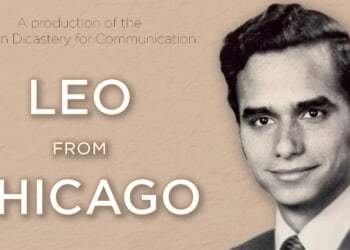In normal circumstances, but especially for a party leader in trouble, the party conference season presents mostly downside risk. A bad conference can precipitate a terminal crisis; a good one rarely sets either leader or party on a new long-term trajectory.
Perhaps this time will be different. But on the face of it, there is no reason to think so – if anything, it looks as though conference could be a much bigger fillip to Kemi Badenoch than it was to, say, William Hague in 1998, for the simple reason that it is that much harder to capture and hold the nation’s attention when polling in third or fourth place, compared to second.
As I argued in the Sun as conference week began, the exam question for Badenoch was a simple one: could she and the Party make good use of the spotlight when the changing of the political seasons thrust them into it?
The answer was broadly ‘yes’. Although the policy offering from the Shadow Cabinet was underwhelming in places, the headline pledge of abolishing Stamp Duty was in the sweet spot of eye-catching, realistic, and actually being a good idea; whilst the grand policy review has clearly been somewhat cast by the wayside to give the leader something to say, last week at least spoke well of those extemporising the policy behind the scenes.
Yesterday, Giles Dilnot wrote about the rally this produced between our pre- and post-conference surveys both in members’ assessments of Badenoch’s chances of leading the party into the next election and their enthusiasm for that proposition. Perhaps unsurprisingly, we also saw a similar story in our long-running question about her and the Shadow Cabinet’s media profile. Here are the pre-conference scores:
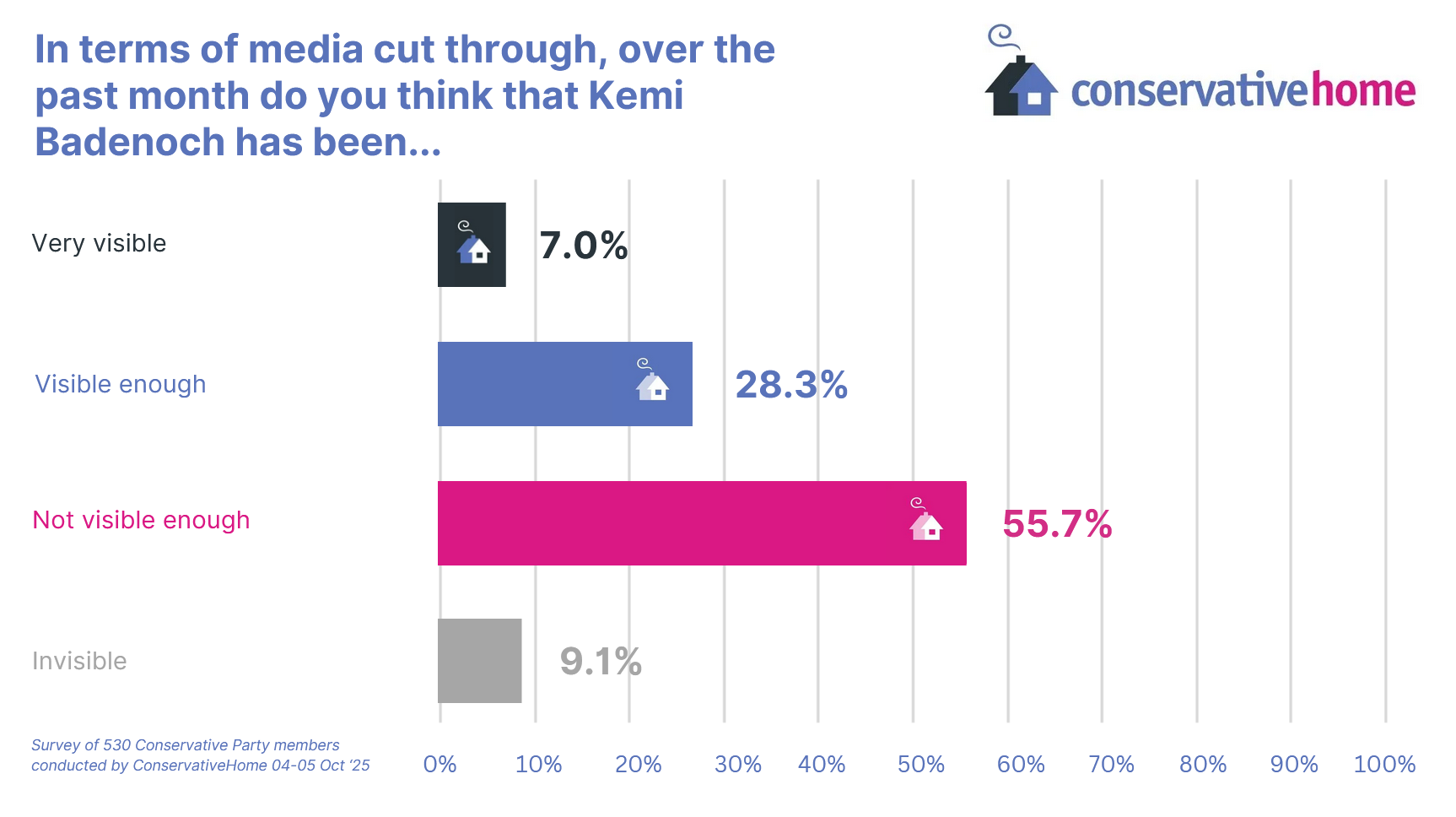
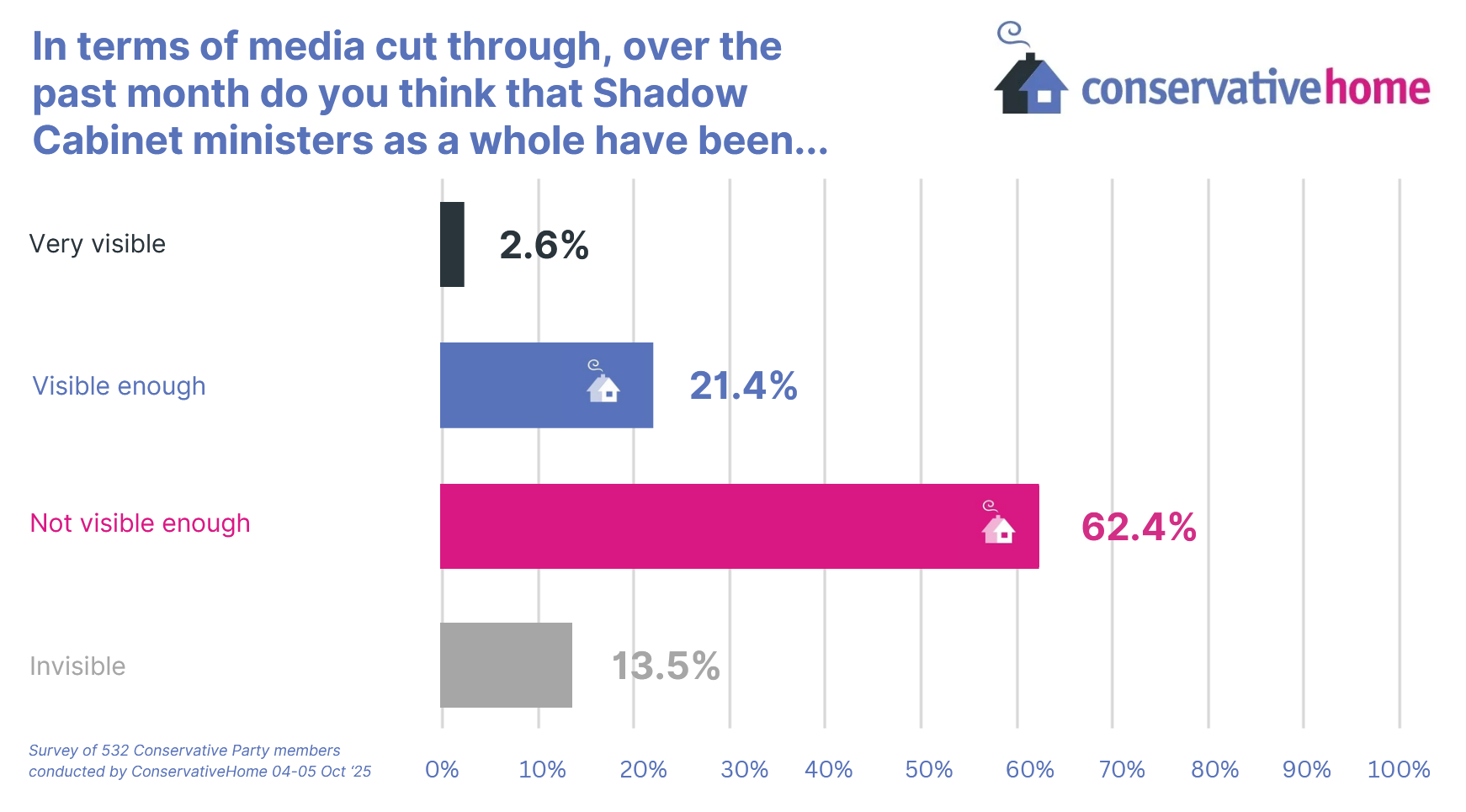
And here the post-conference:
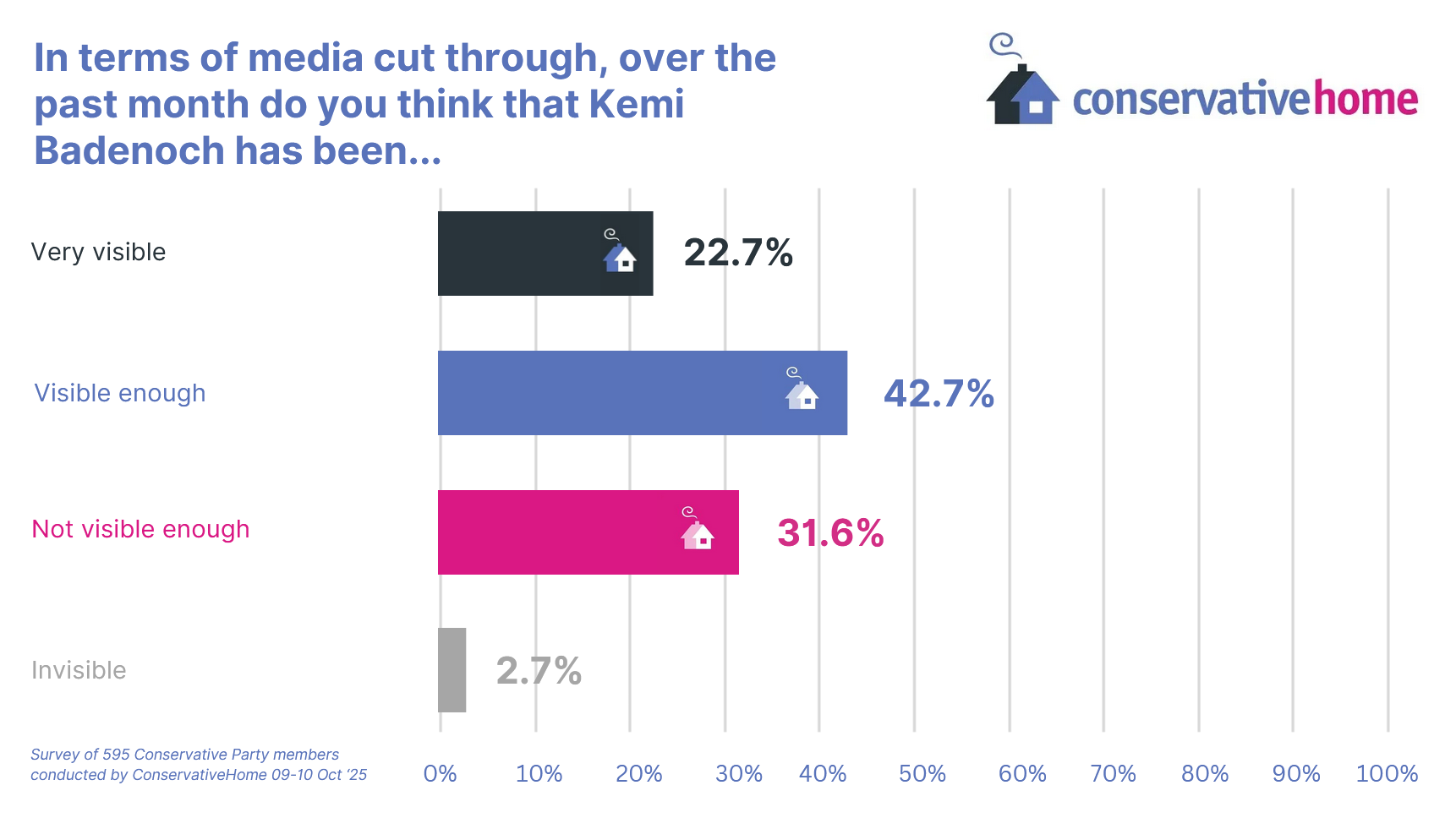
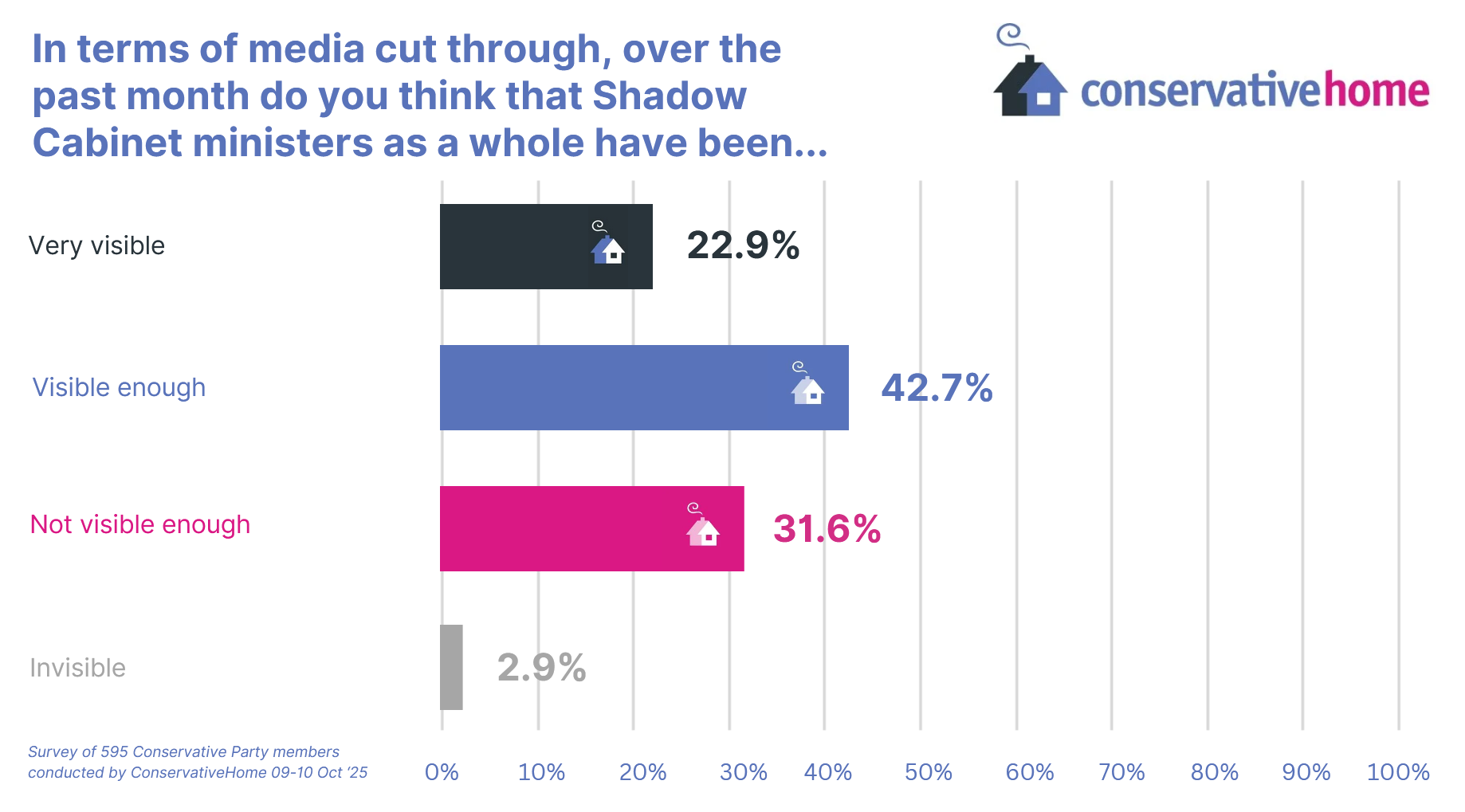 In both cases, we see that where previously more than half of members thought in each case that both the leader and the rest of the Shadow Cabinet were ‘not visible enough’, after conference that share fell to just under a third, with about four in ten panellists now content with their media profile and a smaller share (but still much bigger than before) thinking they have been ‘very visible’.
In both cases, we see that where previously more than half of members thought in each case that both the leader and the rest of the Shadow Cabinet were ‘not visible enough’, after conference that share fell to just under a third, with about four in ten panellists now content with their media profile and a smaller share (but still much bigger than before) thinking they have been ‘very visible’.
Mission accomplished? Sort of. Badenoch has indeed shown that she can make use of the spotlight when it is thrust upon her (aided in part by Andy Burnham, whose vulgar anticipation of the Labour throne the week before helped to mute any mutinous sentiment in Manchester). But the bigger question, yet unanswered, is whether she is able or willing to win the spotlight when it isn’t pointed at the Conservative Party by events.
This has always been one of the big question marks over her leadership ambitions. Badenoch has never shown much enthusiasm for the media and whilst on a human level this is perfectly understandable, the fact is that leader of the opposition is a media job as much as it is anything else. In government, Badenoch skilfully built her profile with a relatively small number of well-chosen interventions on her favourite topics; during the leadership contest, she largely kept her head down and let her initial polling lead carry her through.
Such tactics work in the attention-rich media environment in which Badenoch evolved since being elected in 2017, i.e. government. They are much less well-suited to the circumstances of opposition, especially when the Government is rapidly turning into a dumpster fire and another party, led by one of British politics’ most skilled attention-getters, is polling in first place.
Thus, the next exam question for Badenoch is whether or not she can build on the momentum of conference and find ways to keep winning the spotlight – or, to borrow Tali Fraser’s language, turn the “survival act” into a revival one.
It is vital that the leadership not get complacent: far me it from me to diminish the importance of a ten-point rally in our survey, but what the survey giveth the survey can, and has previously, taketh away. Dilnot wrote yesterday that she has ‘secured’ her leadership, but this is true only in the sense that she avoided the immediate crisis which would have followed a bad one.
The bigger picture has not yet shifted: prior to Manchester, Badenoch’s opponents were generally waiting until May’s local and devolved elections; after Manchester, they still are.

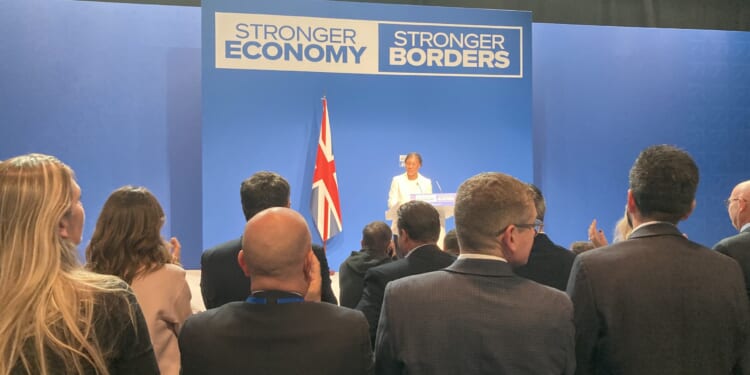






![Florida Officer Shot Twice in the Face During Service Call; Suspect Killed [WATCH]](https://www.right2024.com/wp-content/uploads/2025/12/Inmate-Escapes-Atlanta-Hospital-After-Suicide-Attempt-Steals-SUV-Handgun-350x250.jpg)

![Keith Ellison Caught Promising to Fight State Agencies for Somali Fraudsters [WATCH]](https://www.right2024.com/wp-content/uploads/2026/01/Keith-Ellison-Caught-Promising-to-Fight-State-Agencies-for-Somali-350x250.jpg)


